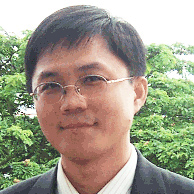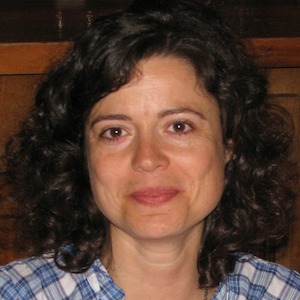Statement and goals
Web intelligence is the area of scientific research and development that explores the roles and makes use of artificial intelligence and information technology methodologies for enabling the design and implementation of new products, services and frameworks that are empowered by the World Wide Web. In particular, Web intelligence achieves this goal through a combination of digital analytics, which examines how website visitors view and interact with a site’s pages and features, and business intelligence, which allows a corporation’s management to use data on customer purchasing patterns, demographics, and demand trends to make effective strategic decisions. As an example, search engines are one of the Internet applications that better benefit from this innovative method.
Thanks to the aforementioned combination of technologies, Web Intelligence enables the implementation of enhanced systems aimed at improving users' experience in using and manipulating web resources, and companies' activities in deploying profiled and personalised contents and services. However, the imprecise and vague nature of World Wide Web, due to the large amount of information online and the different types of interaction that users and companies can have with this information, requires a new vision of web intelligence in which the treatment of uncertainty is a key factor.
Indeed, recent literature review suggests that more and more successful developments in Web Intelligence are being integrated with fuzzy sets to enhance smart functionality such as web search systems by fuzzy matching, Internet shopping systems using fuzzy multi-agents, product recommender systems supported by fuzzy measure algorithms, e-logistics systems using fuzzy optimisation models; online customer segments using fuzzy data mining, fuzzy case-based reasoning in e-learning systems, and particularly online decision support systems supported by fuzzy set techniques. In light of the these observations, this special session is intended to form an international forum presenting innovative developments of fuzzy set applications in Web-based support systems.
The ultimate objective is to bring well-focused high quality research results in Fuzzy Web Intelligence systems with intent to identify the most promising avenues, report the main results and promote the visibility and relevance of fuzzy sets.
Research Areas
- Fuzziness in Web-based group support systems
- Fuzziness in Web-based decision support systems
- Fuzziness in Web-based personalised recommender systems
- Fuzziness in Web-based knowledge management systems
- Fuzziness in Web-based customer relationship management
- Fuzziness in Web-based tutoring systems
- Fuzzy Technology in e-Business intelligence
- Fuzzy Technology for search engine design
- Fuzzy Technology in e-Commerce intelligence
- Fuzzy Technology in e-Government intelligence
- Fuzzy Technology in e-Learning intelligence
- Fuzzy Technology in e-Health intelligence
- Fuzzy Ontologies
- Fuzzy Sets and Semantic Web Applications
- Web-based technologies for Fuzzy Reasoning
- Fuzzy Markup Language and Applications
CONFERENCES AND MEETINGS
July 18-23rd, 2022, Padua, Italy
The constant growth of the Internet and the introduction of such concepts as the Semantic Web and Internet of Things create challenges and opportunities to transform the Internet into an environment providing the users and any Internet-enabled devices with the ability to utilize and explore it efficiently.
The Internet is a vast collection of services, different pieces of information, and data-generated devices – it is inherently heterogeneous, imprecise, uncertain, incomplete, and inconsistent. Therefore, there is a need for techniques, methods, and algorithms supporting processing symbolic and numerical data.
Fuzzy Logic and Soft Computing provide important and non-trivial approaches, techniques, and methods suitable for dealing with imprecision, fusing information from multiple sources, selecting best among various alternatives, or representing information and knowledge using. It is anticipated that applications of fuzziness and soft computing technologies to internet systems will bring a new way of performing web activities and information processing tasks.
Special Session Topics
- multi-criteria decision-making
- internet of things
- information fusion
- semantic-based processing of data
- approximate reasoning
- fuzzy ontology and ontology-based systems
- knowledge- and rule- systems
- rule-based systems
- hybrid intelligent systems
- recommendation systems
- context-aware systems
- information retrieval and knowledge discovery
- Fuzzy Markup Language and its applications
Important Dates
- Paper Submission: January 31, 2022
- Notification: April 26, 2022
- Final Paper Submission: May 23, 2022
Organizers
- Giovanni Acampora , University of Naples Federico II, Italy
- Chang-Shing Lee, National University of Tainan, Taiwan
- Marek Z. Reformat, University of Alberta, Canada
- Autilia Vitiello, University of Naples Federico II, Italy
About Us
We focus on the current research trends in the area of theory and practical aspects of intelligent systems equipped with fuzzy and other soft computing methods suitable for solving issues specific to web utilization, as well as to representation and processing of information and knowledge with special emphasis on fuzzy ontologies, and their applications in various domains.

 Giovanni Acampora
Giovanni AcamporaUniversity of Naples Federico II, Italy

 Valerie Cross
Valerie CrossMiami University, OH, USA

 Chang-Shing Lee
Chang-Shing LeeNational University of Tainan, Taiwan

 Vincenzo Loia
Vincenzo LoiaUniversità degli Studi di Salerno, Italy

 Trevor Martin
Trevor MartinUniversity of Bristol, UK

 Gabriela Pasi
Gabriela PasiUniversity of Milano Bicocca, Italy

 Marek Reformat
Marek ReformatUniversity of Alberta, Canada

 Sabrina Senatore
Sabrina SenatoreUniversità degli Studi di Salerno, Italy

 Dominik Slezak
Dominik SlezakUniversity of Warsaw, Poland

 Susana Vieira
Susana VieiraUniversity of Lisbon, Portugal

 Ronald R. Yager
Ronald R. YagerIona College, NY, USA

 Yiyu Yao
Yiyu YaoUniversity of Regina, Canada

 You?
You?